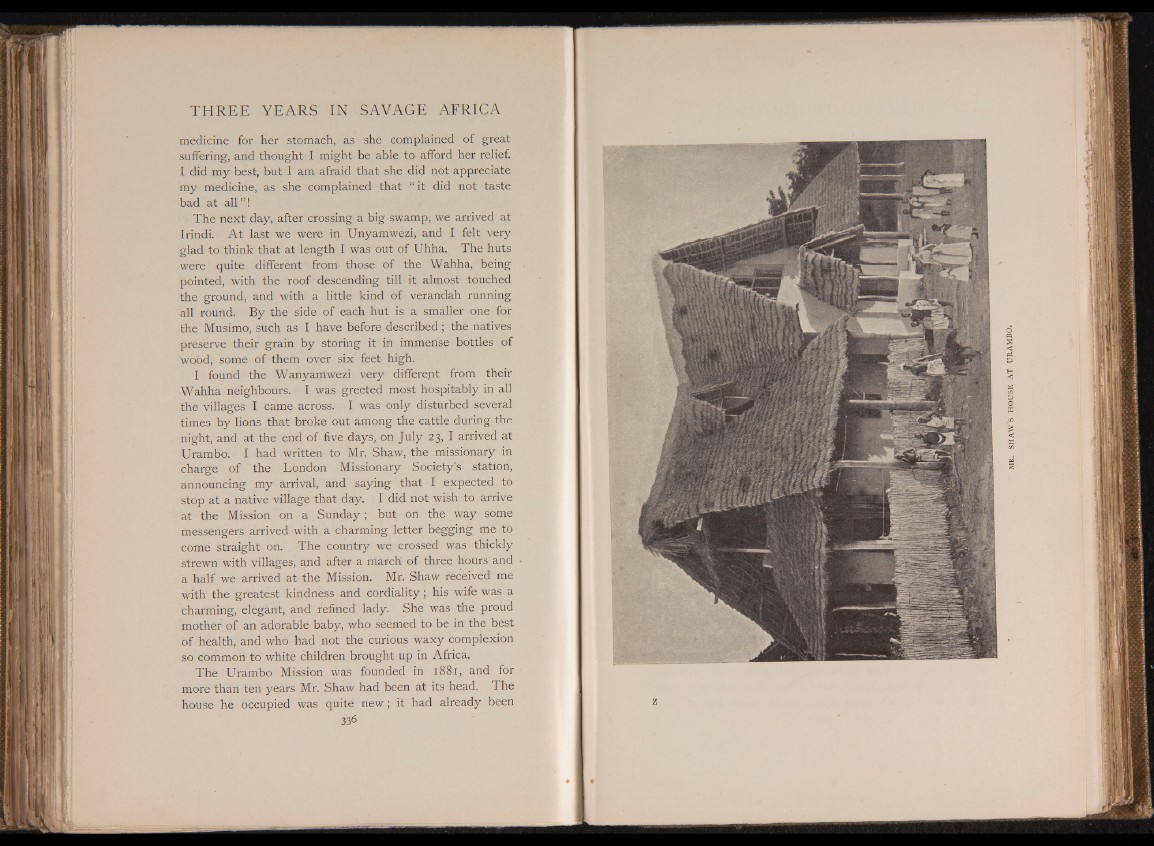
medicine for her stomach, as she complained of great
suffering, and thought I might be able to afford her relief.
I did my best, but I am afraid that she did not appreciate
my medicine, as she complained that “ it did not taste
bad at a ll” !
The next day, after crossing a big swamp, we arrived at
Irindi. At last we were in Unyamwezi, and I felt very
glad to think that at length I was out of Uhha. The huts
were quite different from those of the Wahha, being
pointed, with the roof descending till it almost touched
the ground, and with a little kind of verandah running
all round. By the side of each hut is a smaller one for
the Musimo, such as I have before described ; the natives
preserve their grain by storing it in immense bottles of
wood, some of them over six feet high.
I found the Wanyamwezi very differejnt from their
Wahha neighbours. I was greeted most hospitably in all
the villages I came across. I was only disturbed several
times by lions that broke out among the cattle during the
night, and at the end of five days, on July 23, I arrived at
Urambo. I had written to Mr. Shaw, the missionary in
charge of the London Missionary Society’s station,
announcing my arrival, and saying that I expected to
stop at a native village that day. I did not wish to. arrive
at the Mission on a Sunday ; but on the way some
messengers arrived with a charming letter begging me to
come straight on. The country we crossed was thickly
strewn with villages, and after a march of three hours and
a half we arrived at the Mission. Mr. Shaw received me
with the greatest kindness and cordiality; his wife was a
charming, elegant, and refined lady. She was the proud
mother of an adorable baby, who seemed to be in the best
of health, and who had not the curious waxy complexion
so common to white children brought up in Africa.
The Urambo Mission was founded in 1881, and for
more than ten years Mr. Shaw had been at its head. The
house he occupied was quite new; it had already been
336